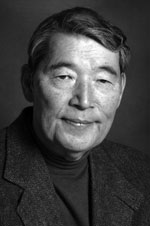 |
 |
|
 |
 |
 |
 |
 |
|
 |
 |
 |
 |

The Masakazu Konishi Endowed Lectureship in Neural Systems & Behavior
6/30/10 - 8:00 PM - Speck Auditorium
"Understanding the Relationship Between Genes and Social Behavior: Lessons from the Honey Bee"
Gene Robinson, University of Illinois
Gene E. Robinson joined the faculty of the University of Illinois at Urbana-Champaign in 1989 and holds a University Swanlund Chair and a Center for Advanced Study Professorship. He is also the director of the University of Illinois Bee Research Facility, director of the Neuroscience Program, leader of the Neural and Behavioral Plasticity Theme at the Institute for Genomic Biology, and a professor of entomology with affiliate appointments in the departments of cell & developmental biology, natural resources & environmental sciences, and animal biology in the Beckman Institute of Science and Technology. Dr. Robinson obtained his Ph.D. from Cornell University in 1986. He is the author or co-author of about 250 publications, pioneered the application of genomics to the study of social behavior, led the effort to gain approval from the National Institutes of Health for sequencing the honey bee genome, and heads the Honey Bee Genome Sequencing Consortium. Robinson has significantly advanced the understanding of the role of genes, hormones, and neurochemicals in the mechanisms and evolution of social behavior. His honors include: University Scholar and member of the Center of Advanced Study at the University of Illinois; Burroughs Wellcome Innovation Award in Functional Genomics; Founders Memorial Award from the Entomological Society of America; Fulbright Senior Research Fellowship; Guggenheim Fellowship; NIH Pioneer Award; Fellow, Animal Behavior Society; Fellow, Entomological Society of America, Fellow, American Academy of Arts & Sciences; Winner, NIH Pioneer Award; and member of the U.S. National Academy of Sciences.
 |
|
Dr. Masakazu "Mark" Konishi is the Bing Professor of Behavioral Biology at the California Institute of Technology. He has worked extensively for three decades on the auditory systems of barn owls, which can use their acute hearing to home in on mice on the ground, even in total darkness. The research has led to an understanding of how the owl's brain manages to "compute" precise locations in two dimensions, and how the neural pathways and circuits are involved. Dr. Konishi's work has implications for better understanding the human brain and perhaps even for future interventions in certain neurological disorders. Dr. Konishi received a B.S. and M.S. from Hokkaido University, Sapporo, Japan, and a Ph.D. from the University of California, Berkeley. Following post-doctoral fellowships at the University of Tubingen and Max-Planck-Institut in Germany, Dr. Konishi was appointed an assistant professor of biology at the University of Wisconsin, Madison. He subsequently held assistant and associate professor positions at Princeton University. He has been a professor at Caltech for the last 32 years. Dr. Konishi is a member of the National Academy of Sciences, the American Academy of Arts and Sciences, as well as numerous professional organizations. He has received many awards, including The Peter Gruber Prize in Neuroscience.
|
| |
  |
|
 |
 |
|